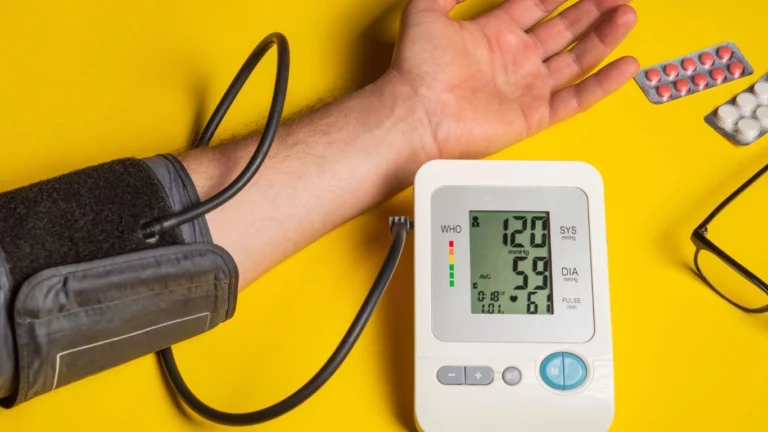Rheumatoid Arthritis and Its Impact on Dental Health: Protect Your Smile Today!
Rheumatoid arthritis (RA) is an autoimmune disease that affects millions of people worldwide. As a Rheumatology Nurse Practitioner, I’ve seen firsthand how this condition can impact more than just the joints—it can also have serious repercussions on dental health. Often, the connection between RA and oral health is overlooked, but understanding how these two are linked is crucial for patients living with this chronic condition.
Understanding the Link Between Rheumatoid Arthritis and Oral Health
Rheumatoid arthritis is characterized by inflammation in the joints, but did you know that this inflammation can also extend to the tissues in your mouth? The body’s immune system mistakenly attacks healthy cells, leading to pain, stiffness, and swelling in the joints. This process doesn’t stop at the joints; it can affect the soft tissues in the mouth as well. So, how exactly does RA impact dental health?

The Impact of RA Medications on Your Teeth and Gums
One of the most common treatments for rheumatoid arthritis is the use of disease-modifying antirheumatic drugs (DMARDs). While these medications are essential for controlling the disease, they can sometimes cause side effects that affect oral health. For instance, methotrexate, one of the most prescribed RA drugs, can lead to mouth sores, dry mouth, and gum irritation. These symptoms can contribute to discomfort and increase the risk of developing dental issues like cavities and gum disease.
Other medications used to manage RA symptoms, such as biologic drugs (e.g., TNF inhibitors), may also have an indirect effect on oral health. These drugs suppress the immune system to reduce inflammation and prevent joint damage, but they can leave patients more vulnerable to infections, including those in the mouth. This is particularly concerning since RA patients are already at a higher risk for oral infections due to reduced blood flow and inflammation in the gums.
The Role of Inflammation in Gum Disease
Inflammation is at the core of both rheumatoid arthritis and periodontal disease (gum disease). The chronic inflammation caused by RA can weaken the gums, making them more susceptible to infection. Research suggests that people with RA are more likely to experience severe gum disease, also known as periodontitis, which can lead to tooth loss if left untreated. Additionally, gum disease can worsen RA symptoms by triggering systemic inflammation, creating a vicious cycle that is difficult to break.

Why Good Oral Hygiene is Critical for RA Patients
Maintaining good oral hygiene is crucial for anyone, but for those living with rheumatoid arthritis, it becomes even more important. The combination of RA-related inflammation, medication side effects, and an increased susceptibility to gum disease means that regular dental care is essential for preventing complications.
Tips for Protecting Your Teeth and Gums
- Brush regularly: Brushing twice a day with a fluoride toothpaste can help prevent plaque buildup and gum disease.
- Floss daily: Flossing helps remove food particles and plaque from between your teeth, reducing the risk of gum disease.
- Stay hydrated: If you’re on medications that cause dry mouth, drinking water throughout the day can help keep your mouth moist and reduce the risk of tooth decay.
- Use an antibacterial mouthwash: This can help reduce inflammation and fight bacteria that contribute to gum disease.
- Regular dental checkups: Make sure to visit your dentist at least twice a year for professional cleanings and checkups.
In my practice, I’ve noticed that RA patients who are diligent about their oral care tend to have better outcomes, not only for their teeth but also for their overall health. By taking these steps, you can help protect your teeth and gums from the effects of rheumatoid arthritis and maintain a healthier smile.

Managing RA-Related Dental Issues: What You Need to Know
For people living with rheumatoid arthritis (RA), managing dental health can sometimes feel like another daunting task on top of everything else. I’ve seen many patients over the years struggle with balancing their RA treatment plan and maintaining their oral hygiene, but it’s absolutely doable with the right approach. It’s crucial to understand that the effects of RA on your dental health aren’t something to brush off—pun intended. These challenges can affect your quality of life, so it’s important to stay on top of both your RA care and your dental health.

How to Work with Your Dentist for Optimal Oral Health
If you’re living with RA, one of the most important steps in maintaining good dental health is to work closely with your dentist. I can’t stress enough how valuable it is to inform your dentist about your RA diagnosis and any medications you’re taking. This information will help your dentist tailor their approach to better suit your needs and avoid potential complications. It’s not uncommon for people with RA to have dry mouth or sensitive gums, so your dentist might recommend specific toothpaste or mouthwashes to help alleviate these issues.
Regular dental checkups are especially vital, even if you don’t notice any immediate dental problems. Since RA patients are at a higher risk for conditions like gum disease and oral infections, a dentist’s intervention can catch these issues early and help prevent further complications. In my experience, when RA patients stay consistent with their dental visits, they tend to maintain healthier teeth and gums in the long run. The key is to communicate openly with both your rheumatologist and dentist so that everyone is on the same page when it comes to your health.
Understanding the Impact of RA on Your Bite and Jaw
It’s not just your gums and teeth that need attention; RA can also affect your bite and jaw. The inflammation that occurs with RA can impact the temporomandibular joint (TMJ), which connects your jaw to your skull. TMJ disorders can lead to pain, stiffness, and difficulty chewing, and they’re surprisingly common in people with RA. This can cause additional discomfort for RA patients when eating or speaking, which makes it even more important to address the issue early on.
TMJ Pain: Why It Happens and How to Alleviate It
The inflammation in your jaw joint, a common result of RA, can lead to TMJ pain. I’ve had many patients express frustration over their jaw pain, especially when it’s combined with the already-existing joint pain from RA. TMJ pain often manifests as a dull ache or sharp pain near the ear or jaw, and it can sometimes radiate to the neck and shoulders. This pain can make it hard to open your mouth wide or chew comfortably.
Luckily, there are ways to manage TMJ pain. A few practical tips that I often share with my patients include:
- Use heat or cold packs: Applying a warm compress to the affected area can help relax the muscles, while a cold pack can reduce inflammation.
- Gentle jaw exercises: Light stretches or exercises prescribed by your dentist or physical therapist can help ease stiffness and improve jaw movement.
- Avoid hard foods: Soft foods that don’t require too much chewing can help prevent strain on the jaw.
- Stress management: Since stress can exacerbate TMJ pain, incorporating relaxation techniques like deep breathing or meditation can be beneficial.

The Importance of Diet for Rheumatoid Arthritis and Oral Health
Diet plays a huge role in managing both RA and dental health, yet it’s one area that’s often overlooked. Many RA patients struggle with eating due to joint pain and jaw issues, but it’s important to maintain a balanced diet that supports both your joints and your teeth. I’ve seen firsthand how a nutrient-rich diet can help reduce inflammation and contribute to overall well-being, including the health of your gums and teeth.
Foods That Support Oral and Joint Health
When it comes to supporting your oral health while managing RA, focusing on anti-inflammatory foods is key. Incorporating these foods into your diet not only helps reduce joint inflammation but can also improve your gum health. Some of the top foods I recommend to my patients with RA include:
- Omega-3-rich foods: Foods like salmon, flaxseeds, and walnuts are rich in omega-3 fatty acids, which help reduce inflammation throughout the body, including in the gums.
- Fruits and vegetables: These provide essential vitamins, such as Vitamin C, which is important for gum health and the immune system.
- Green tea: Green tea is known for its anti-inflammatory properties and can help reduce the risk of gum disease.
- Dairy products: Dairy products like yogurt and cheese provide calcium and Vitamin D, both of which are vital for strong teeth and bones.
- Whole grains: Whole grains are rich in fiber, which can help keep your gums healthy by promoting saliva production, which in turn helps protect against tooth decay.
On the other hand, certain foods should be limited, especially if you’re concerned about your dental health. Sugar, for example, can contribute to tooth decay and gum disease, and processed foods can exacerbate inflammation in the body. While it’s okay to indulge every now and then, it’s best to keep these foods to a minimum when managing RA and maintaining good oral health.

Preventing Complications: How RA Patients Can Protect Their Oral Health
As we’ve discussed in the previous sections, rheumatoid arthritis (RA) can affect your oral health in a variety of ways—from dry mouth to gum disease and TMJ issues. But here’s the good news: with the right strategies and preventative care, you can significantly reduce the risk of complications. In my experience working with RA patients, taking proactive steps to protect your teeth and gums can make a huge difference in your overall health and well-being.

The Importance of Early Detection
Early detection is crucial when it comes to both RA and dental health. If you notice any signs of gum disease, such as bleeding gums, persistent bad breath, or gum recession, it’s essential to address these issues as soon as possible. Early treatment can prevent these problems from escalating into more severe conditions like tooth loss or systemic infections.
I always encourage my patients to keep an eye on their oral health and report any changes to their dentist and rheumatologist. By taking a proactive approach, you can help mitigate the impact RA has on your dental health. And while RA can increase your risk of dental issues, it doesn’t mean you have to accept them as an inevitable part of your journey. Regular monitoring and collaboration with your healthcare providers can help keep your smile healthy and vibrant.
Maintaining Good Oral Health Habits for the Long-Term
Taking care of your teeth and gums should be part of your overall RA management plan. Good oral hygiene isn’t just about brushing and flossing—it’s about creating habits that support long-term health. As someone who works closely with people managing RA, I’ve seen that consistency is key. Just like with your RA treatment plan, the more consistent you are with your oral health care routine, the better your results will be.
How to Stay Consistent with Your Oral Health Routine
Staying on top of your oral hygiene might seem like a lot of work when you’re already managing the challenges of RA, but trust me, it’s worth the effort. Here are some tips to help you stay consistent:
- Set reminders: If you struggle with remembering to brush and floss, set a reminder on your phone or leave sticky notes in places you’ll see regularly.
- Make it part of your routine: Brush and floss at the same time every day to make it a habit that you don’t have to think twice about.
- Use the right tools: Invest in an electric toothbrush if manual brushing is difficult. These brushes can be more effective at removing plaque and reducing gum irritation.
- Get support from family or caregivers: If RA symptoms make brushing or flossing difficult, ask for help or look into specialized dental aids that can make the process easier.
Staying consistent with your oral health routine won’t just help you avoid dental issues, but it will also give you peace of mind knowing you’re doing everything you can to stay healthy. Trust me—when you make your dental health a priority, you’re setting yourself up for long-term success.

What to Do if You Experience Serious Dental Issues
Even with the best preventive care, sometimes RA patients can still experience serious dental issues. If you’re dealing with pain, inflammation, or any other severe symptoms, it’s important to act quickly. Don’t wait for the problem to get worse. In my clinical experience, I’ve seen patients who delay addressing dental issues because they’re already overwhelmed by their RA symptoms, and this can make things more complicated in the long run.
If you have RA and are experiencing significant dental problems, it’s important to:
- Seek dental treatment immediately: Don’t wait to see if the problem resolves on its own. Contact your dentist for an appointment and explain your RA diagnosis so they can take appropriate steps.
- Coordinate care with your rheumatologist: If you’re dealing with an infection or need oral surgery, make sure your rheumatologist is aware. They can adjust your RA medications or provide guidance to ensure the best possible outcome.
- Follow through with treatment: Whether it’s a filling, root canal, or even a tooth extraction, following your dentist’s recommendations is crucial for your oral health. If RA-related medications are making it harder for your body to heal, your dentist might prescribe additional treatments to support recovery.
By working with your healthcare team and staying on top of any oral health issues, you can manage both your RA and your dental health effectively. It might take some effort, but it’s absolutely worth it in the end. Keeping your teeth and gums in good shape will not only make you feel better physically but will also boost your confidence and overall quality of life.
References
If you’re looking for more information on rheumatoid arthritis and its effects on oral health, here are a few trusted resources:
Disclaimer
The information in this article is intended for general informational purposes only and should not be considered a substitute for professional medical advice, diagnosis, or treatment. Always seek the advice of your physician or other qualified health provider with any questions you may have regarding a medical condition. Never disregard professional medical advice or delay in seeking it because of something you have read in this article.

Tarra Nugroho is a dedicated Nurse Practitioner with a strong foundation in family and preventive care. She brings both compassion and clinical expertise to her practice, focusing on patient-centered care and health education. As a contributor to Healthusias.com, Tarra translates medical knowledge into clear, empowering articles on topics like women’s health, chronic disease management, and lifestyle medicine. Her mission is simple: help people feel seen, heard, and informed—both in the clinic and through the content she creates. When she’s not caring for patients, Tarra enjoys weekend hikes, plant-based cooking, and curling up with a good health podcast.







